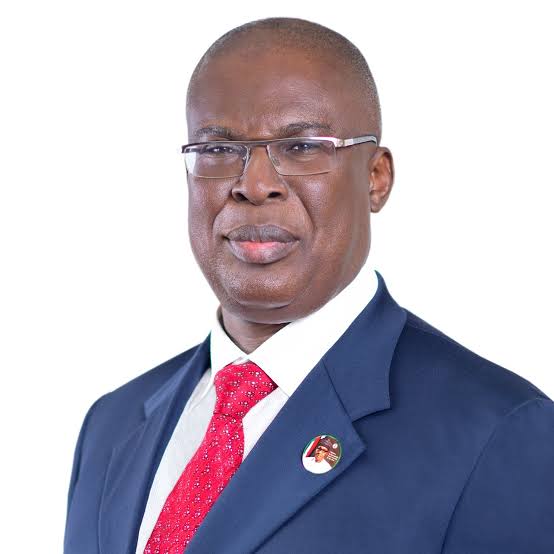The British Virgin Islands (BVI) Commercial Court has delivered a significant ruling in favour of Access Bank Plc, granting the Nigerian lender summary judgment exceeding $220 million against businessman and former Seplat Energy chairman, Dr. Ambrosie Bryant Chukwueloa Orjiako, his wife, and eight BVI-registered companies.
The judgment, handed down by Justice Mithani on October 1, 2025, marks a major milestone in a decade-long cross-border debt enforcement dispute that has drawn attention across financial and legal circles in Nigeria, the UK, and the Caribbean, Prime Business Africa reports.
The decision underscores the BVI’s readiness to pierce complex offshore corporate structures where evidence shows attempts to frustrate creditors.
Join our WhatsApp ChannelA Decade-Long Financial Dispute
Prime Business Africa gathered that the case originated from a 2013 syndicated loan facility valued at over $200 million granted to Shebah Exploration & Petroleum Company Limited (SEPCOL), a Nigerian oil and gas firm controlled by Dr. Orjiako. The loan was jointly provided by Afrexim Bank, Diamond Bank Plc, and Skye Bank Plc, with Dr. Orjiako personally guaranteeing repayment.
After SEPCOL defaulted, the lenders called on the personal guarantee. Access Bank, as the successor to Diamond Bank, obtained a judgment in the English Commercial Court against Orjiako for the unpaid debt. The bank then launched proceedings in the BVI to enforce the English judgment and recover assets suspected to be beneficially owned by the businessman.
At the heart of the dispute were eight BVI-incorporated companies – Abbeycourt Energy Services (BVI) Ltd, Plumage Management Ltd, Pursley Resources Ltd, Neville Investment Management Ltd, Sinclair Commercial Ltd, and others, which collectively held substantial shares in Shebah Petroleum Development Company (BVI), a key shareholder in Seplat Energy Plc, the Nigerian energy giant listed on both the Nigerian Exchange (NGX) and London Stock Exchange (LSE).
Between 2014 and 2017, after the loan had gone into default, Dr. Orjiako purportedly transferred ownership of the companies to his wife, Mrs. Igra Orjiako. Access Bank alleged that these transfers were made with the intention to defraud creditors and to shield assets from enforcement.
Court Orders and Interim Reliefs
Before the final hearing, Access Bank obtained a worldwide freezing order, disclosure orders, and an interim receivership order from the BVI Court, all aimed at preventing the dissipation of assets pending judgment, Prime Business Africa reports.
These interim measures allowed the bank to trace asset movements and establish a clear connection between Dr. Orjiako and the companies, paving the way for its application for summary judgment a procedure that allows courts to determine cases without a full trial if the evidence is overwhelming.
The summary judgment hearing was held before Justice Mithani over two days in July 2025, leading to the October ruling now hailed as a precedent-setting decision in cross-border enforcement.
READ ALSO: Access Bank Dithers As Analyst Flags Enforcement Hurdles in $220 Million BVI Court’s Debt Judgement
UK Supreme Court Upholds Nigeria’s Right to Recover £44.2m in Legal Costs from P&ID
Court Orders Forfeiture of N5bn Shares Linked to Ex-Army Properties MD
Court’s Reasoning: Fraud, Beneficial Ownership, and Sham Transfers
Justice Mithani, in a detailed 70-page judgment, addressed whether it was appropriate to grant summary judgment in a claim involving serious allegations of fraud and asset concealment.
He affirmed that while caution is warranted, there is no absolute rule against granting summary judgment in fraud cases, provided the evidence is “clear and compelling” and the defence “fanciful or unsupported by credible evidence.”
The Court emphasised that defendants cannot merely rely on speculation or vague assertions, noting that it is insufficient to suggest that “something might turn up” at trial. If a defendant seeks to show a realistic defence, they must produce or identify specific evidence that could support it.
Prime Business Africa reports that on the beneficial ownership issue, the judge examined whether Dr. Orjiako truly divested control of the companies when transferring them to his wife. Applying principles from trust law and the doctrine of sham transactions, the Court held that the transfers lacked any commercial rationale and that Dr. Orjiako continued to exercise full control and derive benefit from the companies after the purported transfers.
“The case against the defendants on beneficial ownership is overwhelming,” Justice Mithani wrote, concluding that the defence was “little more than a bare denial, unsupported by contemporaneous evidence.” He described a full trial in such circumstances as “a pointless waste of time.”
Intent to Defraud Creditors
In addressing Access Bank’s alternative claim under Section 81 of the Conveyancing and Law of Property Act (CLPA), which voids transactions made with intent to defraud creditors, the judge found that the evidence demonstrated “a deliberate, systematic and fraudulent attempt” to put assets beyond the bank’s reach.
The Court found that Dr. Orjiako transferred shares to his wife at a time when he was insolvent, fully aware that he could not repay his debts without recourse to those assets. His argument that the transfers were made for estate planning purposes was rejected as “not just fanciful but false.”
Justice Mithani ruled that “the Bank had amply established the intent to defraud,” concluding that Dr. Orjiako’s hopeless insolvency made such a finding inevitable.
On the Question of “Good or Valuable Consideration”
One of the notable aspects of the ruling is the Court’s interpretation of “valuable or good consideration” under Section 81 of the CLPA. Dr. Orjiako’s defence argued that the share transfers were supported by “natural love and affection.”
The judge firmly rejected that contention, holding that natural love and affection is neither valuable nor good consideration in the context of fraudulent conveyance law. Moreover, the Court found that Mrs. Orjiako “well knew what was going on,” ruling out any claim that she acted in good faith or without notice of her husband’s intent.
Dominant Purpose and Insolvency
The judgment also clarified a grey area in BVI and English law, whether fraudulent intent must be the dominant purpose of a transaction under Section 81 of the CLPA.
Drawing from English insolvency law precedents, the judge held that while fraudulent intent need not be the sole purpose, in this case, it was clearly the dominant and overriding purpose.
“The insolvency of the debtor,” the judge wrote, “may lead a court to infer the existence of the requisite purpose.” Given Orjiako’s inability to satisfy the debt without the concealed assets, the Court concluded that his intention to defraud was undeniable.
Legal Significance and Wider Implications
The ruling is widely regarded as a major precedent in cross-border asset recovery and the enforcement of foreign judgments within the BVI.
It affirms that summary judgment can be granted even in fraud-related cases when the evidentiary record is strong, signaling that the BVI Commercial Court will not hesitate to act decisively in the face of clear misconduct.
For Access Bank, the outcome strengthens its position as a leading player in international debt enforcement, demonstrating its capacity to pursue defaulting debtors across jurisdictions from London to Lagos to the caribbean.
Legal practitioners say the case offers valuable guidance on the application of fraudulent conveyance laws, beneficial ownership principles, and the scope of judicial discretion in granting summary judgment.
The judgment also carries broader implications for Nigerian corporations and high-net-worth individuals who maintain offshore holding structures, particularly those facing domestic or international debt enforcement.
Access Bank is expected to proceed with enforcement actions against the identified offshore assets to satisfy the $220 million debt and accrued interest.
Amanze Chinonye is a Staff Correspondent at Prime Business Africa, a rising star in the literary world, weaving captivating stories that transport readers to the vibrant landscapes of Nigeria and the rest of Africa. With a unique voice that blends with the newspaper's tradition and style, Chinonye's writing is a masterful exploration of the human condition, delving into themes of identity, culture, and social justice. Through her words, Chinonye paints vivid portraits of everyday African life, from the bustling markets of Nigeria's Lagos to the quiet villages of South Africa's countryside . With a keen eye for detail and a deep understanding of the complexities of Nigerian society, Chinonye's writing is both a testament to the country's rich cultural heritage and a powerful call to action for a brighter future. As a writer, Chinonye is a true storyteller, using her dexterity to educate, inspire, and uplift readers around the world.
















